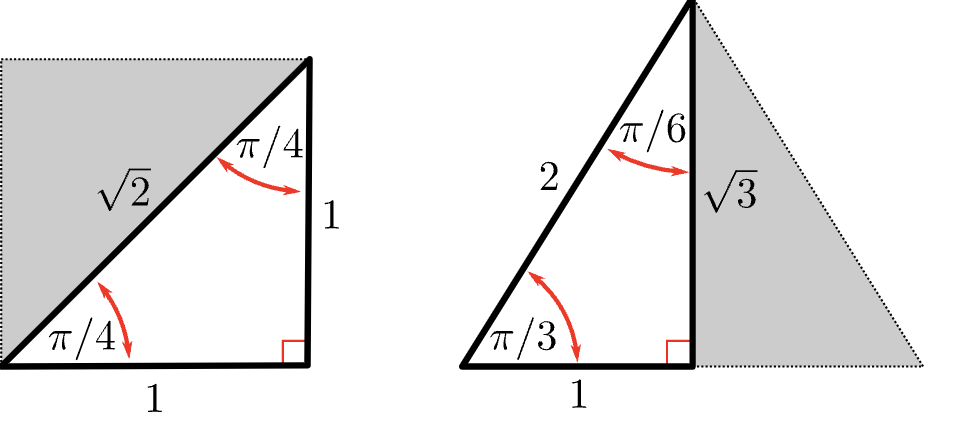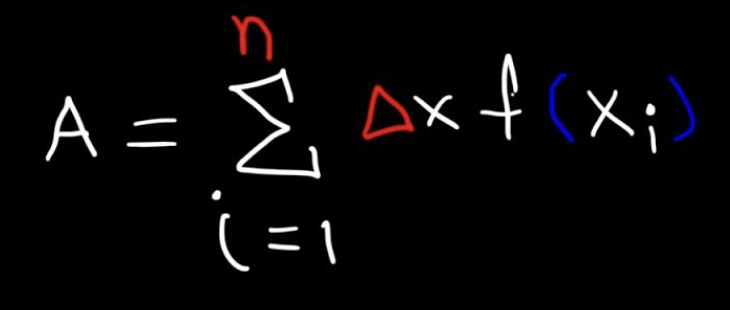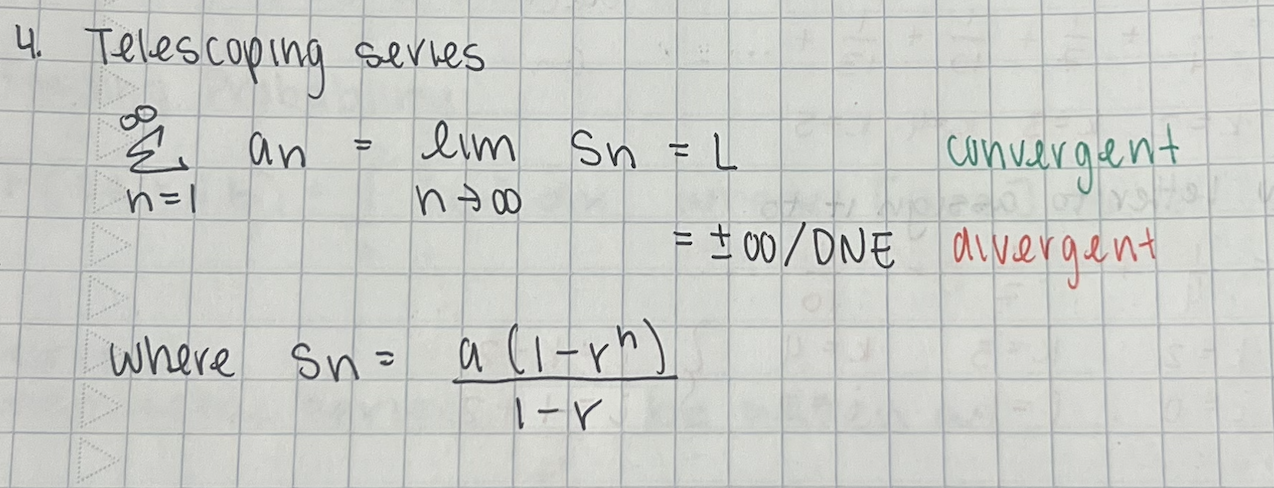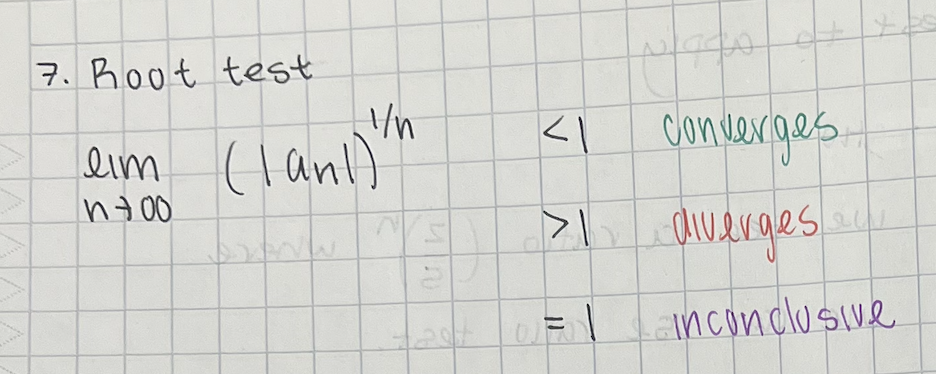MATH101 Memorize
1/42
There's no tags or description
Looks like no tags are added yet.
Name | Mastery | Learn | Test | Matching | Spaced |
|---|
No study sessions yet.
43 Terms
Volume of a sphere
V = 4/3 * πr³
Area of a sphere
S = 4πr²
Circumference of a Circle
C = 2πr
Area of a circle
A = πr²
Quadratic Formula

Trig Functions

Special Triangles

Riemann Sum Right and Left Hand
Right hand: xi
Left hand: x1-1

Trapezoidal Rule
delta x = b-a/n n:
number of trapezoids

FTC1
This says that the derivative of the integral (function) gives the integrand; i.e. differentiation and integration are inverse operations, they cancel each other out.
FTC2

Lebniz Rule Formula
Integral = uv - ∫vdu
Pythagorean Identities

Derivative Identities

Squared Identities

Sin Sub

Tan Sub

Sec Sub

simpsons rule

Midpoint reiman

Probability Formula
Integrating from bound to bound must equal 1.
PDFS must be greater than or equal to 0

sum of geometric series

taking the limit of geometric series

Divergence test
Taking the limit of an (an is the function in the series)
if lim ≠ 0 it diverges
if lim = 0 inconclusive
identifying ratio test

p series test

Telescoping Series Test

integral test

ratio test

root test

Direct comparison test

Alternating Series Test

Geometric Series Test

Choosing which test: 1. ratio
look for a clean ratio to the power of n
Choosing which test: 2. alternating series
look for (-1)^n
Choosing which test: 3. divergent series
look for a clean an
Choosing which test: 4. direct comparison and limit comp
ignore factorials
look for nice fractions
Choosing which test: 5. root test
look for equations to the power of n
Choosing which test: 6 ratio
look for factorials
radius of convergence three conditions
ratio(an+1) / (an)
< 1 interval converge
= 0 all x values
= inf only to center
center is where (x-a) in the function where a is the center
check end points by pluging in for x in original series and seeing if it converges or diverges
formula for derivatives taylors series (must get power series representation first)
f^m(0)
______ = the part of your series which is not x^m. solve for f^m
m!
taylor series general formula
where a is the center

expected value formula PDF
e(x) = integral from your bounds of f(x) * x